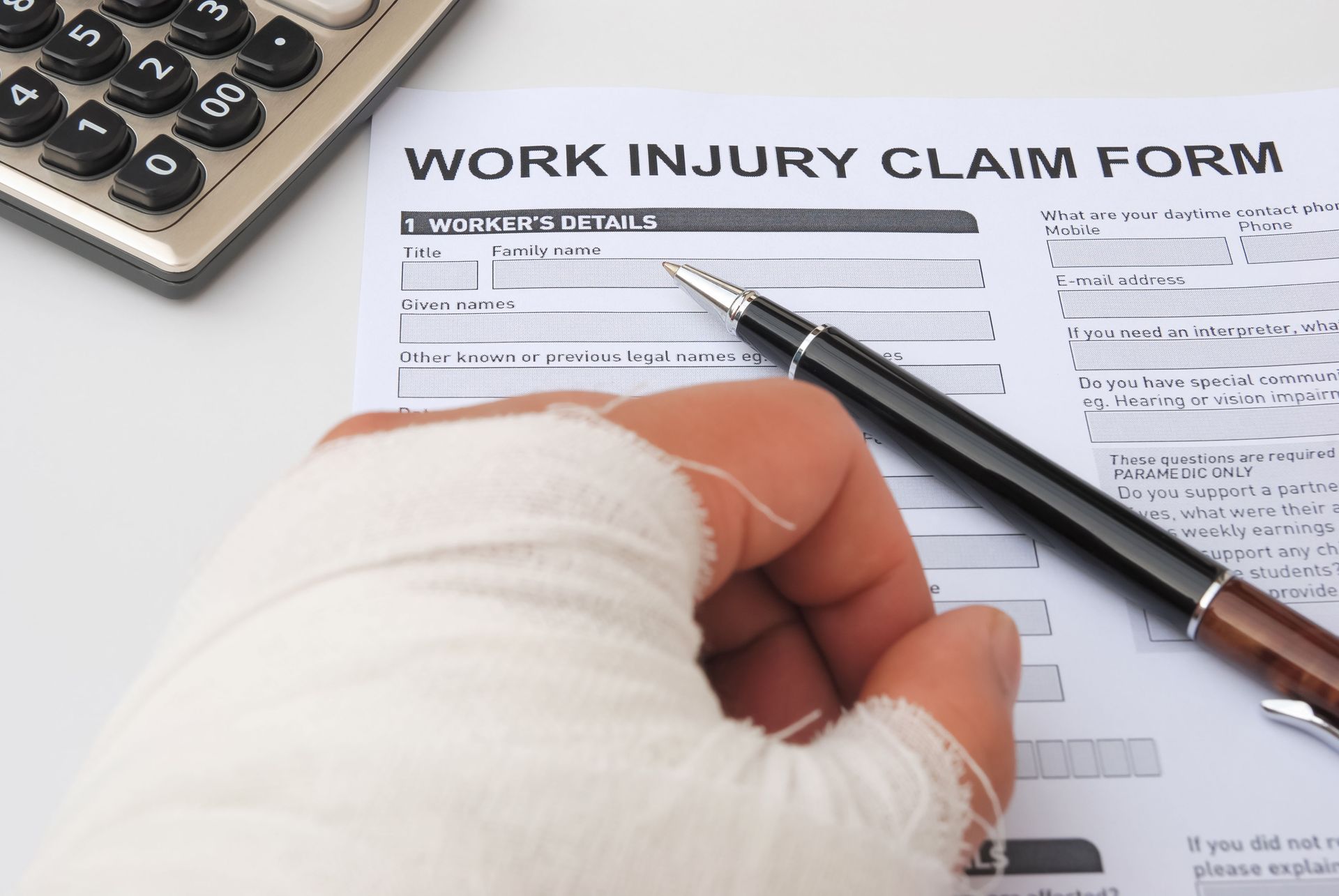What to Do If Your Employer Denies a Work Injury Claim
Highlights:
- Workers' compensation claims can be denied if employers dispute the injury.
- Employees have legal rights to appeal or challenge claim denials.
- Proper documentation and medical records are critical to proving work-related injuries.
- Filing deadlines and state-specific procedures must be followed carefully.
- Schnurr Law Firm, P.C. in Fort Dodge, IA helps workers fight claim denials effectively.
What Should I Do if My Employer Denies That My Injury Happened at Work?
When an employer denies that an injury happened at work, it can leave employees feeling uncertain and frustrated. Workers' compensation exists to protect employees who suffer harm on the job, but disputes are not uncommon. According to the Occupational Safety and Health Administration (OSHA), all employees have the right to report workplace injuries and illnesses without fear of retaliation. Knowing this is the first step toward addressing a denial. If your claim has been challenged, understanding your rights and next steps is critical to protecting your benefits.
In Fort Dodge, IA, workers often rely on the claims process to cover medical bills and lost wages. When employers deny an injury, the dispute may involve whether the injury truly occurred during work-related activities. Sometimes, employers argue that injuries happened off the clock or were caused by pre-existing conditions. In these situations, documentation becomes essential. Medical records, accident reports, and witness statements provide evidence that links the injury to the workplace. Employees who prepare this evidence early often have stronger claims when disputes arise.
Employers may deny claims because of financial pressures or concerns about rising insurance premiums. However, this should not discourage injured employees from pursuing what they deserve. According to Risk & Insurance, about 70% of initially denied workers' compensation claims are ultimately converted and paid once the employee pursues further action, such as appeal or litigation. Workers in Fort Dodge, IA should recognize that an initial denial is rarely final. Legal avenues exist - through appeals, hearings, or submitting additional evidence - to challenge denials and recover entitled benefits.
FAQ
Why would my employer deny that my injury happened at work?
Employers may deny injuries to reduce insurance costs or argue that the injury occurred outside of work duties.
What evidence do I need to prove my claim?
Medical records, witness testimony, accident reports, and timelines that show the injury occurred during work hours can support your claim.
Can I still receive benefits if my claim was denied?
Yes, you can file an appeal or request a hearing with your state's workers' compensation board to pursue benefits.
Steps to Take Immediately After a Denial
The first step after a denial is to request written documentation from your employer or their insurance carrier explaining why the claim was rejected. Understanding the reason helps shape your next response. In Fort Dodge, IA, workers must follow Iowa's workers' compensation guidelines carefully. Missing a deadline or filing incomplete forms may weaken your appeal. Keep copies of all documents submitted and received. Staying organized ensures that your case is supported by a clear record, which can be presented during hearings or appeals.
Another important step is continuing medical treatment. Even if a claim is denied, your health must remain a priority. Seeking consistent treatment demonstrates the seriousness of your injury. According to the U.S. Department of Labor, medical documentation is often one of the most critical factors in proving workplace injuries. Doctors' notes, diagnostic tests, and treatment plans help establish the connection between the injury and the job. This evidence becomes essential when challenging a denial in Fort Dodge, IA.
At this stage, many workers consult with an experienced attorney. Schnurr Law Firm, P.C., based in Fort Dodge, IA, provides representation for employees facing denied claims. A skilled attorney can evaluate your case, collect necessary evidence, and represent you in hearings before the Iowa Workers' Compensation Commissioner. Legal support often makes the difference between a prolonged denial and a successful resolution. Attorneys familiar with local laws and procedures can streamline the process and ensure no critical steps are missed. Having guidance from professionals can also relieve much of the stress and confusion that comes with navigating a complex system.
FAQ
Do I need a lawyer if my workers' comp claim is denied?
While not legally required, hiring a lawyer improves your chances of successfully appealing and securing benefits.
What deadlines should I know after a denial?
In Iowa, strict deadlines exist for filing appeals. Missing these deadlines could result in losing your right to benefits entirely.
Can I still work while appealing a denied claim?
Yes, but you should follow your doctor's restrictions. Returning to work too early could harm your health and weaken your case.
Building a Strong Appeal
An appeal requires presenting evidence that directly challenges your employer's denial. This may include showing that an injury occurred on the job site, during work hours, or while performing job duties. Witness testimony can be powerful if colleagues saw the accident. Medical professionals can also provide expert opinions linking your injury to your work environment. Employees in Fort Dodge, IA should prepare carefully, as hearings require thorough documentation. The more detailed your case, the better your chances of overturning a denial.
Workers should also be prepared for insurance company tactics during the appeals process. Insurers may attempt to downplay injuries or suggest that alternative causes exist. Having an attorney present can help counter these arguments effectively. According to OSHA, employees have the right to pursue their claims without intimidation or retaliation. This protection is critical because fear of employer pushback may discourage some from continuing. In Fort Dodge, IA, knowing your rights helps you stand firm and advocate for fair treatment.
Appeals may take time, but persistence often pays off. Many workers find that once their evidence is thoroughly reviewed, they receive the benefits they were entitled to from the start. Workers' compensation is designed to support employees, not punish them. Employers and insurers may challenge claims, but the system includes checks and balances. In Fort Dodge, IA, injured workers should remain patient and diligent throughout the process. Strong preparation and legal support often turn denials into approvals. Remaining proactive and keeping track of every communication can give employees an added advantage during appeals.
FAQ
How long does the appeals process take?
The timeline varies, but appeals can take several months. Timely filing and complete documentation can shorten the process.
What if my employer retaliates after I file an appeal?
Retaliation is illegal. OSHA protects workers from being punished for asserting their rights in workers' compensation cases.
Can I settle my claim after a denial?
Yes, in some cases settlements are negotiated during or after the appeal process. Your attorney can advise if settlement is the best option.
Facing a denial of a workers' compensation claim can be stressful, but employees in Fort Dodge, IA have rights and options. Documenting injuries, following medical advice, and consulting with legal professionals are key steps toward success. Schnurr Law Firm, P.C. stands ready to guide injured workers through the process, ensuring deadlines are met and cases are presented effectively. By taking action and pursuing an appeal, employees can protect their health, finances, and future. Even when the process feels overwhelming, persistence and preparation can make a significant difference in the outcome.











Share On: